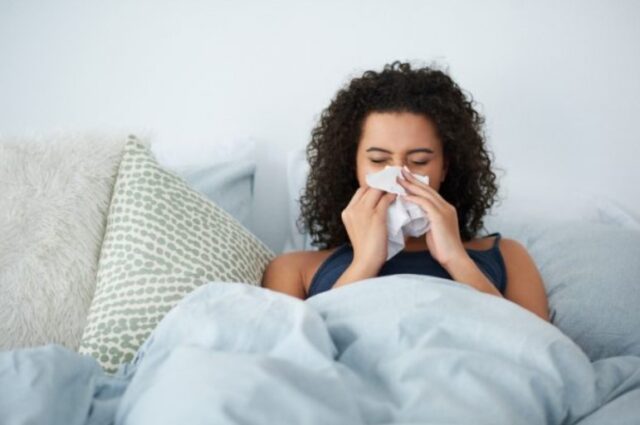
The wonderful news from the medical experts, as if we’ve not had enough this year, is that the flu season in 2024 could be particularly brutal due to the reduction in natural immunity as a result of Covid and a flurry of lockdowns.
Many people spent much of last year relentlessly washing their hands and socially distancing themselves from one another This has led us to an overall lower count of flu and head cold cases but this has come at the price of a (potentially) disastrously low level of natural immunity among the population due to the reduced level of contact.
So, this year, the experts are warning we could be set for what amounts to an influenza double-whammy, especially as we have now entered a time period where we have seen ‘Covid peaks’ in the last two years immediately following the Christmas period where the populace lowers their guard and flouts the government recommendations in favor of spending time together with friends and family.
But the good news – and you probably need some – is that there are a few key things that you can do to increase your chances of avoiding the flu this year and every year coming.
1. Get the flu vaccine

There have been more than enough arguments over the merits of vaccines over the last couple of years, so we won’t get into that. What we will say is that the scientifically proven best way to not get the flu in 2024 is to get the flu vaccine.
You can get a free NHS flu vaccine from your local pharmacy if you are over 50, have certain medical conditions, are pregnant or are under the age of 18. If you’re outside the UK look at the options available on your government website.
2. Eat healthily

With immunity levels down across the board, your immune system needs a bit of a pick-me-up, and the best way to do that is by eating as rich and diverse a variety of fruits and vegetables as you can. Many workplaces are doing their bit by providing free office fruit to their employees from fruit providers like Fruitful Office.
But if you’re not lucky enough to have a benevolent boss, then try to incorporate as many fruit and vegetables into your meals as you can. And remember – fresh, canned and frozen all count. There is plenty of evidence to suggest that in many cases frozen veg actually contains more nutrients than their fresh counterpart.
3. Wash your hands

By now I think it’s safe to assume that we’re all hand-washing experts. It’s not just Covid that can be defeated by a thorough hand wash, however. Influenza can also be washed away by soap and water or an alcohol-based rub. If you do have germs on your hands, then touching your eyes, nose or mouth is a sure way to spread them, so avoid that as much as you can, too.
Wearing a mask will naturally help you reduce these subconscious face touching habits and it has never been more normal to wear a mask in public so continue to use it to your advantage, many Asian countries have adopted the use of face masks in public long before Covid was a thing; it’s seen as common courtesy to your fellow countrymen to help reduce infections (regardless of whatever it is you might be infected with).
4. Take a vitamin D supplement

There’s not all that much sun about in a British winter, which is why, unless you’re lucky enough to enjoy an overseas winter break, you should supplement your levels of vitamin D. Research from Cambridge University suggests that low levels of vitamin D can increase the chances that you’ll get the flu, so take a supplement or eat plenty of fatty fish, egg yolks, milk and mushrooms.
Of course this shouldn’t come at the expense of insuring you have an overall balanced diet that focuses on getting enough of all your essential vitamins and minerals as they all play important roles in keeping your immune system optimized and healthy.
5. Get plenty of rest

It’s easier said than done when you have a busy life, but if you feel like you should probably go to bed a bit earlier, then do it. Listen to your body when it is sending you these clear and obvious signals.
Getting between seven and nine hours of sleep a night and getting plenty of rest in between can not only help to reduce your levels of psychological stress but it has been proven that there is a significant increase in the protective antibodies that you develop in response to the flu vaccine while you’re asleep.
This is because your immune system actually works its hardest while you’re sleeping. The other primary operations of your body go into ‘sleep mode’, including a large chunk of your brain functions and cardiovascular system, which are typically the most energy demanding systems.
With these now running quietly in the background, the body is able to ramp up and fight the infection with much more gusto compared with during the day. This is why people often find that their symptoms (such as a scratchy throat or a cough) feel much worse when they wake up in the morning and then feel it get progressively better throughout the day.
While it may feel like your body is ‘waking up’ and fighting the virus more through the day it’s in fact the opposite. Those groggy feelings are the direct result of your immune system’s response!
So there you have it, five simple steps that you can take to avoid the flu this year. Do you have any additional tip, tricks or advice that you find work for you and would like to share with our readers? Then please write in to let us know!












